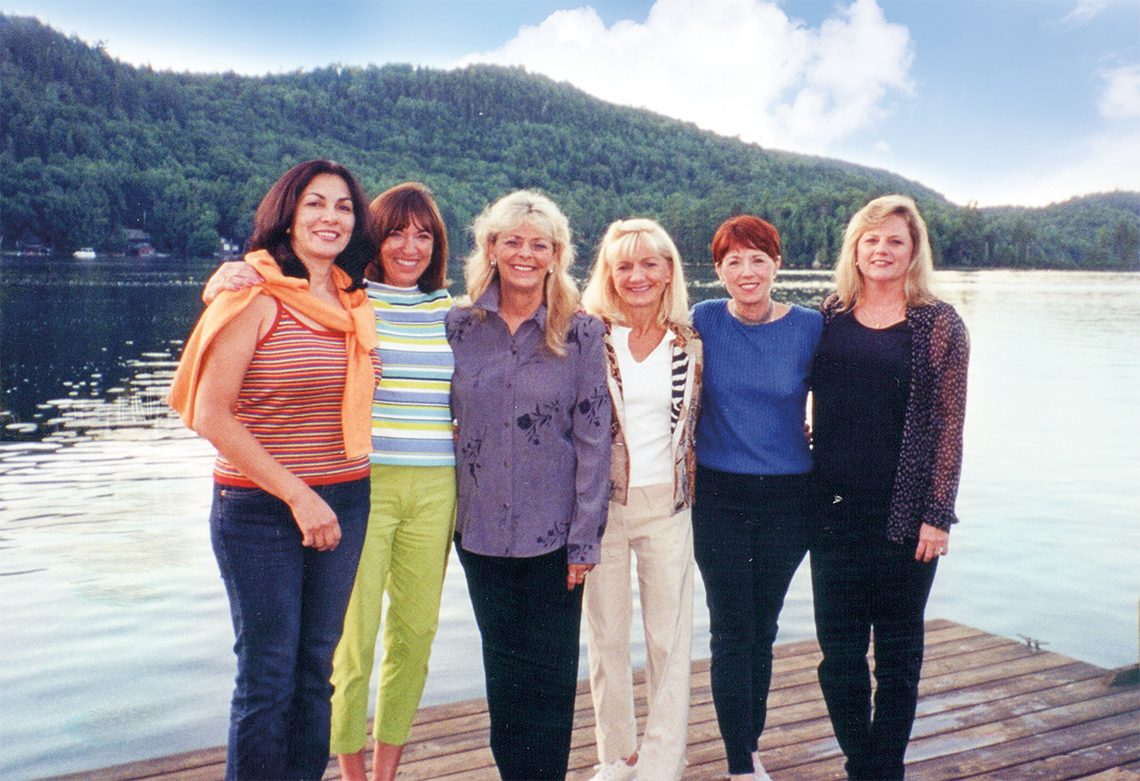
On August 26, 1992, Anne Woods joined a club.
She had four sons; one, Bobby, was away at college in North Carolina. He was a graduate of Cardinal Gibbons High School, where he’d been popular with his classmates, a good student and a standout wrestler. He’d continued dating his high school girlfriend in college, and by all accounts he was succeeding in the next phase of life as he had in the previous.
Then he was killed. There was a car accident, an ambulance, a phone call, a plane ride and a bleary sea of friends, doctors and nurses. In the middle of it all was Bobby, lying peacefully near the machines that were the only things keeping him alive.
Later on, when Anne Woods had met other parents who knew the same loss, the club would get a name – The Mothers’ Club – and a purpose. But at first, there was only daily survival. Months later, when she felt up to contacting people, she placed a call to her son’s former high school to thank staff for the massive, school-colors flower arrangement that had been sent to the funeral. In talking, Woods learned that she was not alone – a handful of other students and recent graduates had died. Woods asked for names and contact details for the other parents. She knew what she wanted to do.
“I said I think it would be good if we all got together,” Woods says. “I don’t think it will be sad, I think it will be good for us.” She was right.
“What it does for you is it lifts you up, and it helps with your grieving.”
Nearly a quarter-century later, Woods still wants to help. The hesitant phone calls she made to that first group of other grieving parents morphed over the years into larger groups and expanding support networks. She was often called upon when a friend of a friend suffered a loss.
And now, from those years of experience comes a book.
“The Mothers’ Club: Beyond the Loss of a Child,” written by Woods and several other parents who have lost children, looks at grief from several perspectives. There is practical information – advice is offered on how to approach somebody who has recently lost a child, and how to set up a group for grieving parents. One chapter is titled “Blueprint for a Mothers’ Club.”
The get-togethers she has helped organize over the years always have a certain feeling, more social gathering than formal meeting or support group. People might sit on couches in a family room. There’ll be food, maybe a bottle of wine. The goal is friendship – friends who get together around a uniting experience. Shortly after Bobby’s death, Woods went to several meetings that weren’t like that. At one, in a church meeting room, you had to raise your hand to speak. “I didn’t like that,” she says. “I didn’t feel comfortable.”
The book also offers practical advice on what can be one of the most difficult aspects of dealing with tragedy for friends of the bereaved – knowing what to say and how to approach the person. One section titled “Caution zone – beware of these phrases” lists common things people say to the bereaved – “You are so strong”; “Your child has gone to a better place” – along with explanations of why they might not be helpful. There’s also frank talk about what a grieving person needs that friends aren’t always willing to give.
“When there’s a loss,” she says, “a lot of people don’t know how to comfort you.”
She remembers receiving visitors who would seem to go out of their way to talk about anything other than Bobby. But people who grieve can also do things that don’t help. Woods recommends embracing big days, not trying to ignore them.
“When you lose someone, you have to do something on the birthday or the anniversary (of the person’s death),” Woods says.
Advice like that runs throughout the book. But there are also the more personal moments. There are personal remembrances, both of children’s lives and of the ways they were lost.
Woods and other Mothers’ Club members had talked about a book for years, but it was another death that made her realize she had to complete the project. She was inspired to get the book finished and published by the death several years ago of another Mothers’ Club member. Judi Macy’s son, Chad, also graduated from Cardinal Gibbons and was also killed in a car accident in 1992. When Judi Macy passed away in 2013 after an illness, Woods decided the book had to be finished.
Now it is. Copies of it sit in the Woods’ Rio Vista home. Walls in the house are filled with pictures – grown sons, spouses, grandchildren. And there are pictures of Bobby. It’s a bright, airy Florida house.
Bobby is remembered every year – there have been parties, and letters sent out, and poems written.
The Woods family has met the man who received Bobby’s heart.
Anne Woods and her family celebrate a life rather than mourning a loss. The journey to that place was not always easy.
With a book, she hopes to help show others the way as well.
For more information on the book and how to obtain a copy, visit themothersclub.net.











